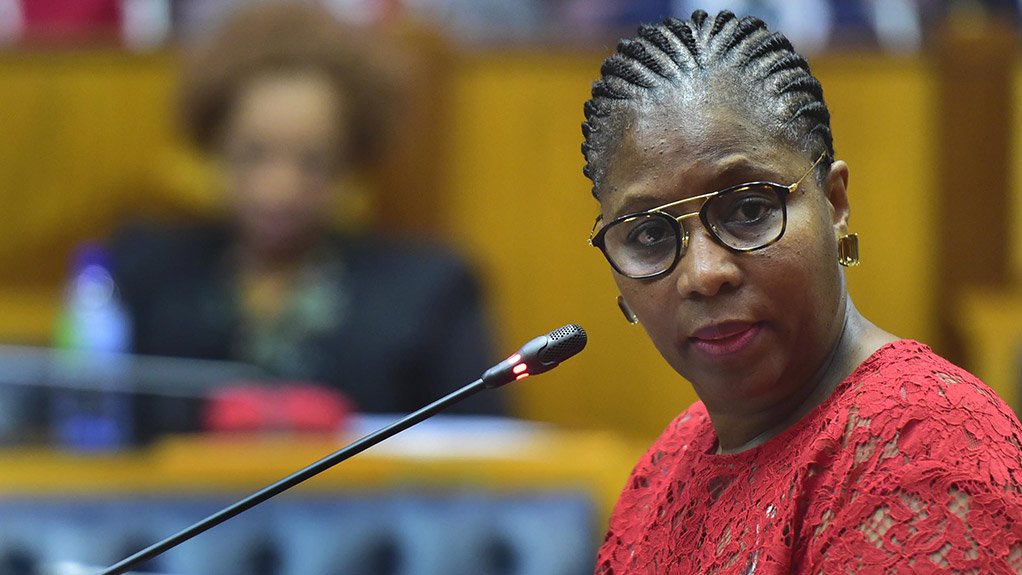Communications Minister Ayanda Dlodlo on Wednesday downplayed suggestions that government wants to create a so-called super presidency by having a hand in budgetary processes.
During a media briefing following the Cabinet meeting, Dlodlo said Cabinet approved the mandate paper for the 2018 Budget.
“This will further drive the implementation of the National Development Plan (NDP). The paper strengthens the alignment of the budget to the Medium Term Strategic Framework. It establishes a systematic basis for making choices among competing priorities within limited resources,” she said, reading from a statement.
Minister in the Presidency Jeff Radebe will hold a media briefing on the contents of the mandate paper at a later stage.
During question time, Dlodlo was asked if the mandate paper means the presidency will have “the final say” over the budget and if it was an attempt to create a “super presidency”.
Dlodlo said the mandate paper is only about prioritising and reprioritising. “The DPME (Department of Planning, Monitoring and Evaluation) is only tasked with planning, but the budgeting process still rests with National Treasury. It doesn’t in any way replace National Treasury.”
She rubbished rumours about the creation of a so-called super presidency.
“What we’re talking about here is the macro configuration of the state where the presidency is the strategic centre. The mandate paper for 2018 assists from a planning perspective by identifying what the priorities should be.
“It aligns the budget with the implementation of the National Development Plan. DPME’s responsibility is to ensure that our planning cycle takes into account all priorities and the readjustment of prioritisation,” Dlodlo said.
Ideally, the mandate paper should be ready in April of every year – early enough to be taken into account in government’s planning cycle.
Polity reported in May that Radebe insisted the mandate paper would not “usurp” South Africa’s well-established and highly-respected budgeting processes, or the National Treasury’s overall authority in determining how funds should be allocated.
He acknowledged though that it was a significant “budget reform” and that the budget process will in future consist of two parts – a prioritisation process led by the DPME and the Presidency, culminating in the compilation of a mandate paper, and the standard allocation process led by the National Treasury, in consultation with departments.
However David Maynier, Democratic Alliance spokesperson on finance, expressed concern over the involvement of Radebe's department in the budgetary processes.
“The fact is that the Minister in the Presidency, Jeff Radebe, and the Department of Planning, Monitoring and Evaluation, are now responsible for determining budget priorities, and that amounts to a 'defanging' of National Treasury.”
EMAIL THIS ARTICLE SAVE THIS ARTICLE
To subscribe email subscriptions@creamermedia.co.za or click here
To advertise email advertising@creamermedia.co.za or click here











